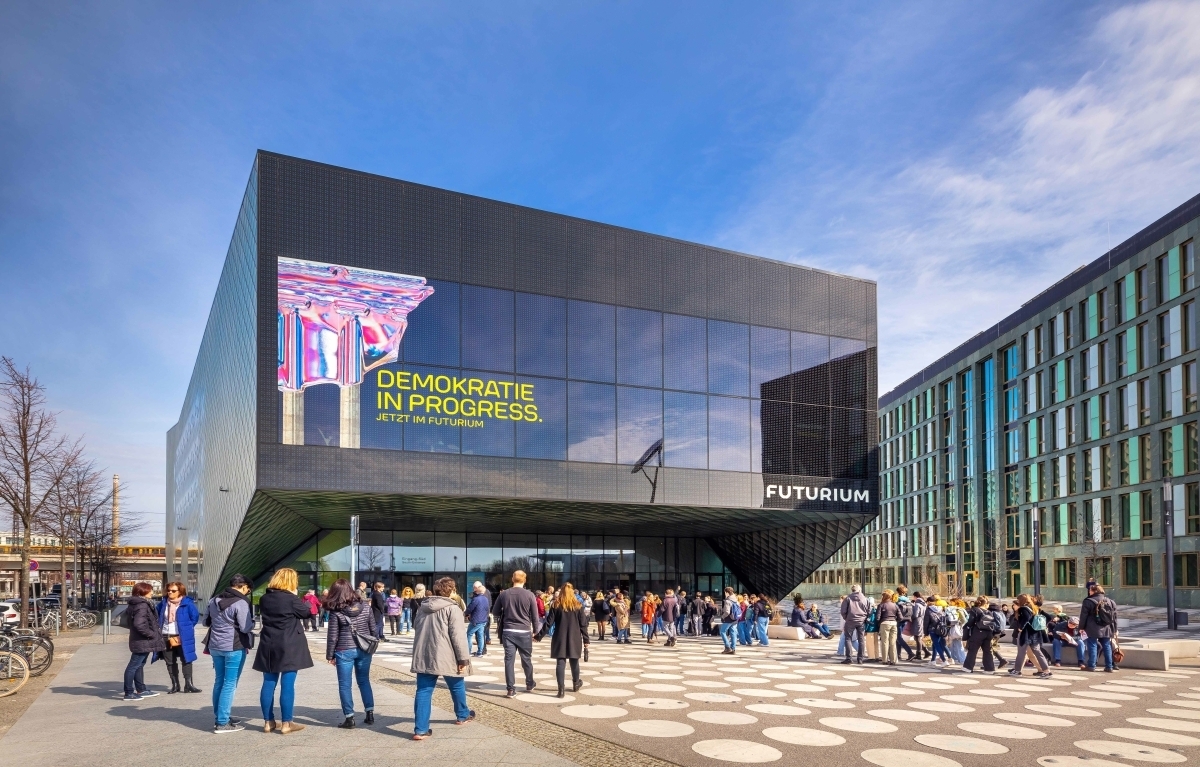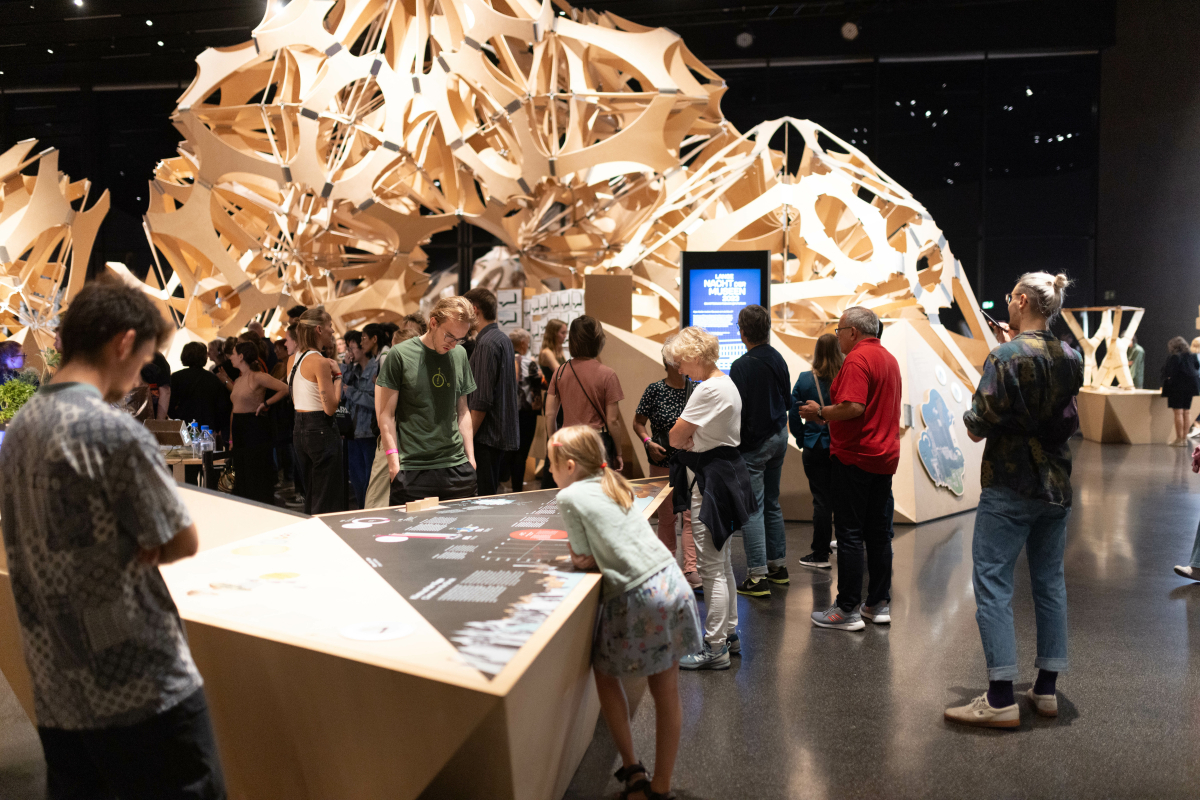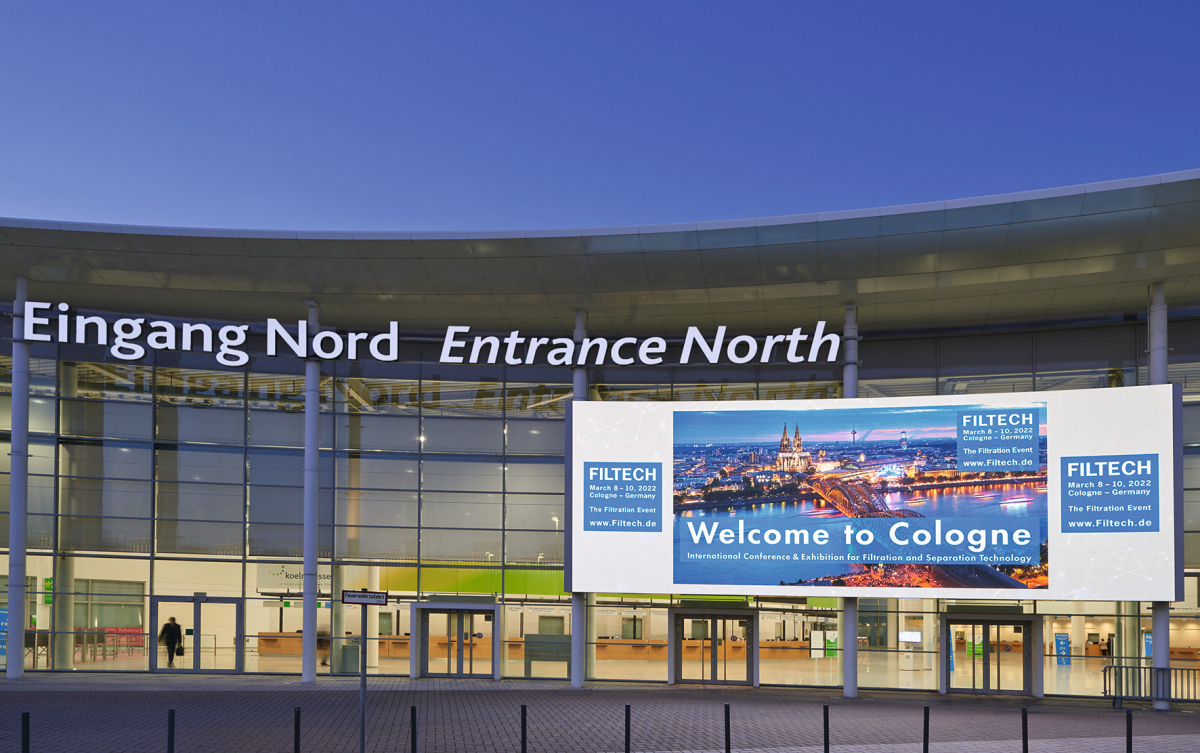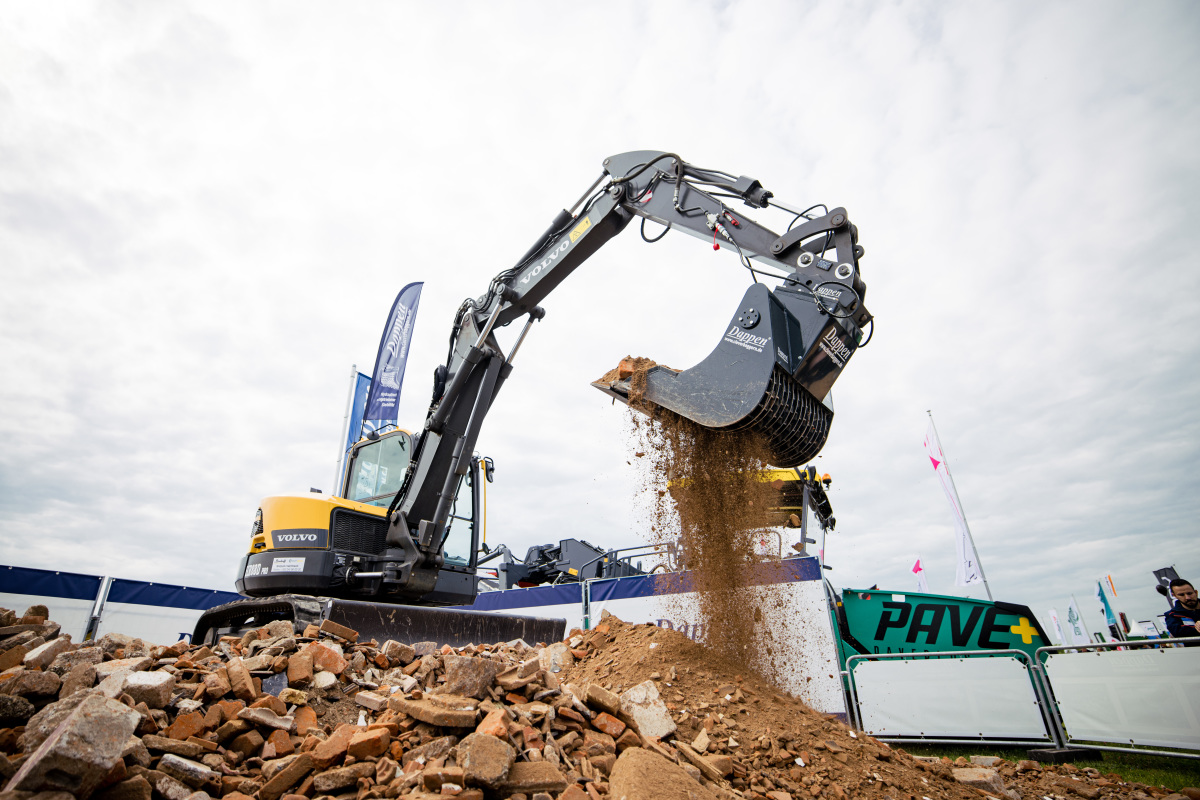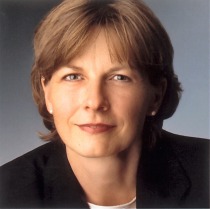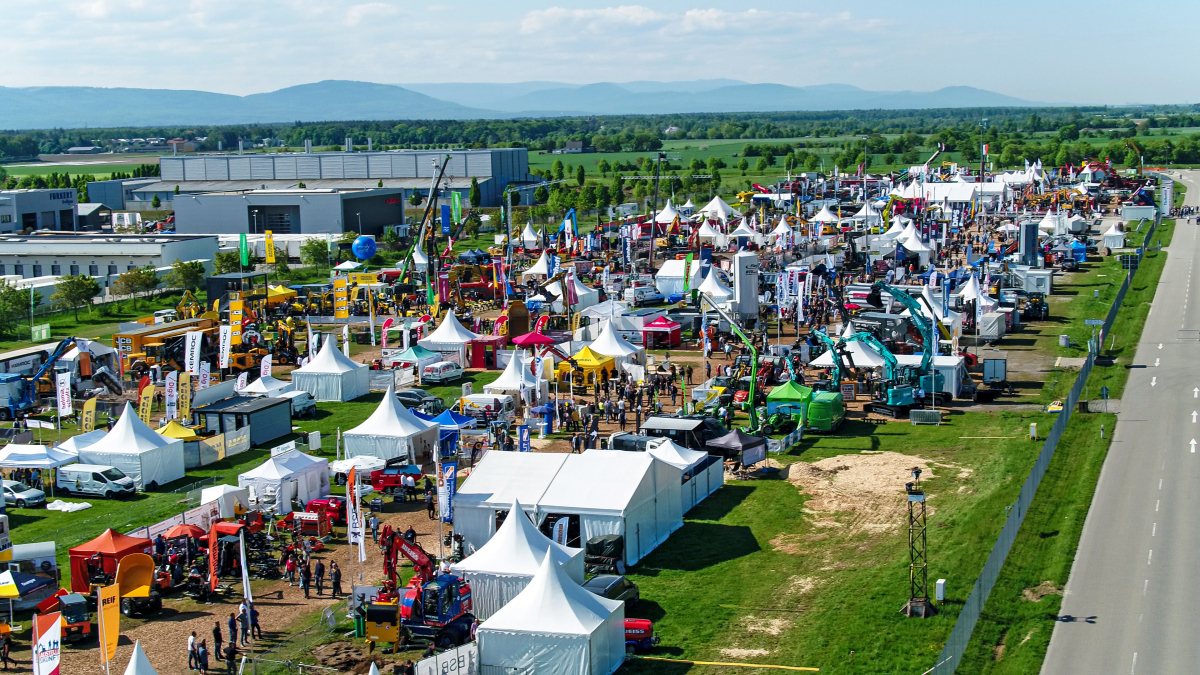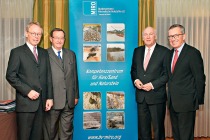“Treasures of the Future”: Launch of this year’s annual theme of raw materials at Futurium
19.04.2024Futurium will begin its new annual theme with a big party. Visitors can discover in the exhibition how we can go about getting a better grip on the huge demand for raw materials in industrialised nations. In the Futurium Lab, researchers will be presenting innovative solutions from research into materials. Experts will be using talks to provide concise bites of knowledge about raw materials, while international guests will be presenting their visions for the latter’s fairer and more sustainable use. In addition, the programme will include a treasure hunt in the city area, a family show with Julian Janssen – known from the children’s TV show “Checker Julian” – an interactive escape game through the exhibition and many other highlights.
Treasures of the future
Raw materials are all around us and form the material basis of our lives. By extracting and processing them, trading with them and using them, we influence on a global scale the environment, the economy and society. A world in which raw materials aren’t used is inconceivable. The industrialised nations base their prosperity on a resource-intensive lifestyle. In view of global challenges such as climate change and the loss of biodiversity, the disadvantages of this model are becoming increasingly clear. This is attributable not least to the fact that other countries are exploiting nature, often under socially problematic conditions, to meet our own society’s demand for raw materials. In this way, ultimately, we are endangering the very basis of our own existence.
Futurium Director Dr Stefan Brandt says: “The annual ‘Earth Overshoot Day’ underlines the relevance of Futurium’s new annual theme of raw materials. If people around the globe were to consume raw materials to the same extent as we do here in Germany, then the Earth’s annual capacity for sustainably usable resources would already be exhausted for 2024 on 2 May. This applies in a similar way to most other industrialised countries too. Therefore, it is clear that what is needed is a major national and international effort to become more ‘resource-light’ – in other words, to use raw materials in a more sparing, innovative and recyclable way. In a nutshell, we must achieve a more circular economy. As usual at Futurium, we not only want to highlight problem areas, but, more than anything, to draw attention to possible solutions and to encourage critical discussion. Because we can only achieve the raw-material transition if we consistently implement in many areas of life the positive approaches from science, business, politics and civil society.”
Programme highlights at the launch event on 4 May
On 4 May from 10:00 to 20:00, Futurium invites all those interested, old and young, to celebrate the launch of the new annual theme “Raw Materials” at a big opening party: On the forecourt, visitors can build their own musical instruments from recycled materials and then play them in a jam session. In the foyer, an improv-theatre will get the audience in the mood for the topic. And in the Forum, visitors can look forward to a family adventure with Julian Janssen, known from the KiKA TV programme “Checker Julian”: on the big stage, Julian will be asking himself what gold is doing in his mobile phone and taking the audience on a raw materials journey around the world. Using VR goggles, visitors to the exhibition can then enter the digital version of a gold mine in the Democratic Republic of the Congo and learn about the conditions under which gold is mined there. In the afternoon, international guests will be providing insights into their visions for the sustainable and fair use of raw materials. Experts will be giving short lightning talks, imparting concise bites of knowledge on the topic. Young people and adults who like solving puzzles are invited to take part in an exciting escape game. A relaxed atmosphere will be maintained throughout the day with the help of music and food.
Admission to Futurium is free of charge. The launch activities will take place exclusively on 4 May and are free of charge. Here’s the complete launch programme.
Treasure hunt in Berlin with exclusive prizes
Even before the opening on 4 May, all of Berlin’s explorers, young and old, are invited to go on a treasure hunt in the city area: QR codes for five raw material treasures will be waiting to be discovered in Berlin from 27 April. They’ll be placed on selected waste bins provided by Berlin’s street cleaners (BSR). The GPS coordinates of the “treasure bins” can be found on a map on the Futurium website. Participants can collect the last of the five different raw material treasures exclusively at Futurium’s launch event on 4 May. Treasure hunters who’ve found all the treasures will be presented at the launch event with a “treasure” of their own to take home and will also be given the chance to win more. With this playful campaign, Futurium invites everyone to discover and rethink raw materials in everyday life.
The treasure hunt is a cooperation between Futurium and BSR. Further information is available at https://futurium.de/de/schatzsuche.
Two new areas in the exhibition
Raw materials often come from far away and are frequently mined under questionable conditions – often without our knowledge. In the exhibition’s Thinking Space Human, six examples from six regions of the world illustrate the background to extraction and trade – in works by artists and also in a make-up tutorial on the subject of “Mica” that will remind people of “Get Ready With Me” videos, a popular social media format in which chatty creators show how they go about presenting themselves stylishly for the day.
Based on the board game Monopoly, “Fair-o-poly” gives its players the opportunity to slip into the role of a mining company and to learn about the production conditions of raw materials. The goal of the game is to improve the working conditions of local people, distribute profits more fairly and implement more environmental protection. However, as the game progresses, it becomes clear that this is not an easy task.
In the Thinking Space Nature, the new raw material themes are grouped around the “Re-Use Marble Run”. Here, visitors can set the raw material cycle in motion and make recycled materials produce sounds. The marble run, which has been in the exhibition since 2019 and is very popular with the public, was rebuilt according to sustainability principles: as much material as possible was retained, while recycled raw materials were used.
New exhibits and workshops in the Lab
Reduce, re-use, repair, refurbish, recycle – the basic principles of the circular economy are the focus of the simulation game “RRRRR”. While this game’s title initially hides these principles by reducing the text to a minimum, the game itself allows the complex process involved in the circular economy to unfold in a comprehensible form: based on the example of the most widely-used everyday object of our time, namely the mobile phone, the game demonstrates how a circular economy can emerge from the linear economy. By setting markers, players can gradually change the existing system. This creates an understanding of the necessary steps that can lead to a more sustainable and resource-efficient future.
Whether beverage packaging, T-shirts or flowerpots – many everyday objects consume large quantities of resources and are difficult to reuse. The exhibit group “Material Treasures of the Future” presents 40 examples of alternatives for a climate-neutral and sustainable future. Among the objects on display are packaging materials made from banana fibres, building materials made from recycled paper, and leather alternatives made from orange peel. Visitors can examine under a microscope the structural properties of the materials.
In the workshop series “Visiting Material Futures” hosted by the experimental laboratory “CollActive Materials”, participants can speculate about which materials the world of tomorrow could be made of. Researchers from the Berlin Cluster of Excellence “Matters of Activity” will give an insight into their work and develop future scenarios together with the participants. The topics of the workshops range from using tree bark or mushrooms as building materials to using temperature-regulating materials for the cities of the future.

